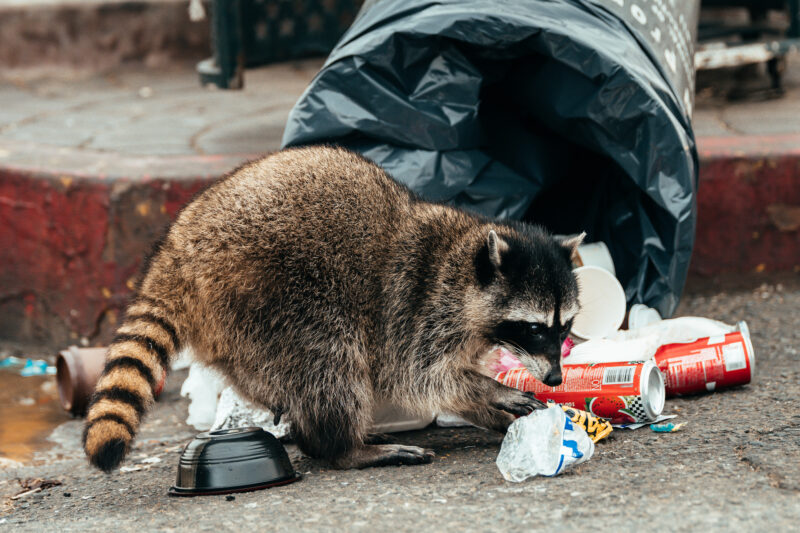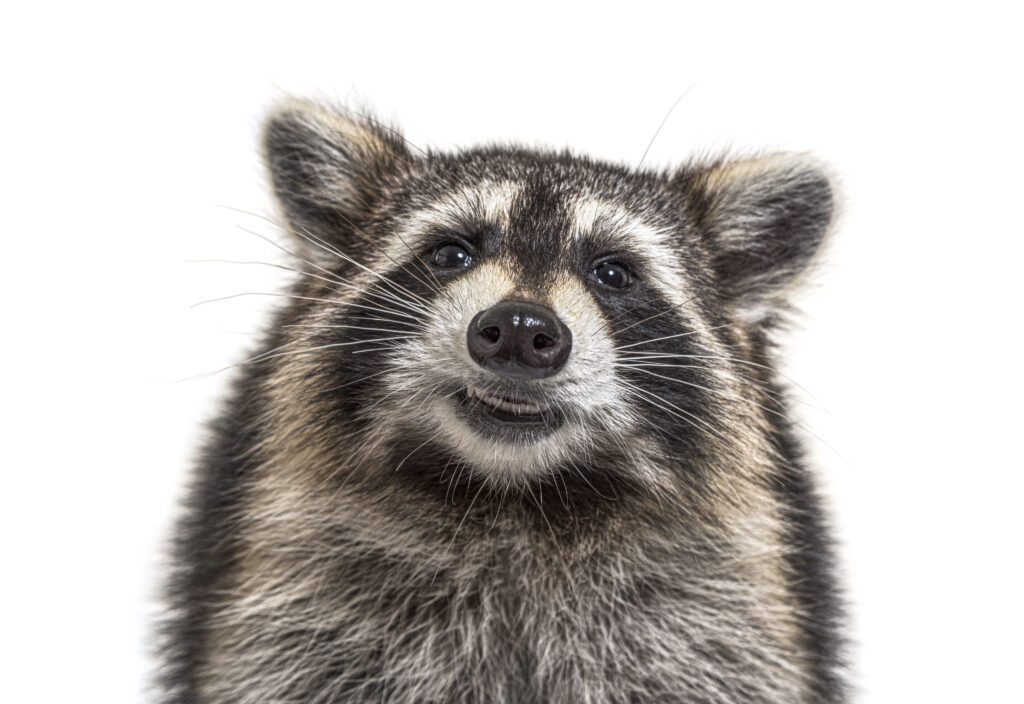“It really can’t hurt,” you say to yourself as the banana drops from your hand, only to be quickly snatched by the paws of the masked bandit scurrying in your yard. “But look how cute he is!” you add as you toss another handful of leftovers his way.
Unfortunately, no matter how “cute” raccoons may seem, feeding them puts you, your pets, and your property at risk. What feels like a harmless act of kindness can quickly become a serious wildlife problem. These clever animals may look harmless, but they can bring aggression, disease, and costly damage into your home or business.
Here’s why the experts at Peachtree Pest Control recommend you never feed raccoons, no matter how tempting it may be.
The Hidden Dangers Behind a Handful of Food
Raccoons are often called “masked bandits” for their signature black markings and mischievous behavior. They are clever, dexterous, and, admittedly, kind of cute. Because of this, some homeowners and business owners in Georgia and South Carolina are tempted to leave out food for them or toss scraps their way.
But feeding raccoons is one of the quickest ways to create a serious wildlife problem. These animals may look harmless, but they can bring aggression, disease, and costly damage into your home or business. Before you hand over that next scrap, it’s important to understand the real consequences of feeding raccoons.
The Appeal of Feeding Raccoons
It is easy to understand why people think raccoons make entertaining “guests.” Their nimble paws let them open jars, unlatch bins, and even manipulate doorknobs. When a raccoon accepts food from a person, it may look playful or tame, almost like a pet.
Children and families may feel like they are “helping” wildlife by providing food. But what feels like kindness can actually backfire, creating dangerous situations for both people and animals.
The Hidden Dangers of Feeding Raccoons
- Increased Aggression and Dependency
Raccoons are naturally wary of humans. When you feed them, they quickly lose that fear. This change in behavior means:
- They may return repeatedly, expecting more food.
- If you stop feeding them, they can become aggressive, biting, scratching, or attacking pets.
- Young raccoons raised around humans often lose their ability to forage naturally, creating long-term dependency.
What begins as a fun “wildlife encounter” can quickly turn into a serious safety concern.
- Health Risks to Humans and Pets
Raccoons are classified as a rabies vector species, meaning they are one of the top wildlife carriers of the rabies virus. Feeding raccoons increases the chances of close contact and possible exposure.
In addition to rabies, raccoons can spread:
- Raccoon roundworm (Baylisascaris procyonis), transmitted through feces and potentially causing severe illness in humans.
- Leptospirosis, a bacterial infection spread through urine that can contaminate soil and water.
- Salmonella, transmitted when raccoons rummage in food or water supplies.
Your pets are also at risk. Dogs or cats may fight with raccoons over food, suffer injuries, or pick up parasites.
- Property Damage
Feeding raccoons makes your home or business an attractive food source. Once comfortable, raccoons will not just stop at the food you offer. They will explore your property for more, leading to:
- Trash cans knocked over night after night.
- Attic, crawl space, or chimney invasions as raccoons look for nesting sites.
- Damage to shingles, vents, wiring, and insulation.
- Raided vegetable gardens, fruit trees, and bird feeders.
What starts with a few tossed scraps can end in thousands of dollars in property repairs.

Real-Life Consequences of Feeding Raccoons
Consider this scenario: a homeowner regularly leaves pet food outside. A raccoon begins visiting nightly. Before long, the raccoon is bringing her kits along, teaching them the same behavior. Eventually, they rip open a vent to nest in the attic, shredding insulation and contaminating the space with urine and feces.
Or imagine a child trying to pet a raccoon that has grown accustomed to handouts. One scratch or bite could mean emergency rabies treatment and lifelong scars.
These situations happen more often than you might think, and they all begin with feeding.
Safer Ways to Live Alongside Raccoons
You do not need to fear raccoons, but you do need to keep your distance. Here are wildlife control approved ways to discourage them from lingering around your property:
- Secure trash cans with tight-fitting lids or bungee cords.
- Bring pet food indoors at night and never leave bowls outside.
- Clean up fallen fruit, nuts, and birdseed that attract raccoons.
- Install fencing or barriers around gardens and fruit trees.
- Never attempt to touch, pet, or feed a raccoon.
By removing food sources, you make your property far less appealing to these curious creatures.
When to Call a Professional
If you have already noticed signs of raccoon activity, such as noises in the attic, tipped trash, paw prints, or strong odors, it is time to call in the experts. Attempting to trap or relocate raccoons on your own is risky, both legally and physically.
Peachtree Pest Control’s wildlife specialists use safe, humane, and effective methods to remove raccoons and prevent them from returning. Our Integrated Pest Management (IPM) approach ensures raccoon control is handled at the source with minimal risk to your family, pets, or the environment.
The Safer Choice for You and Your Property
Raccoons may look charming with their masked faces and curious paws, but feeding them is never safe. What begins as a “cute” moment can lead to aggression, disease, property damage, and costly infestations.
The safest way to protect your home or business is to keep food sources secured and call in professionals if raccoons become a problem.
Peachtree Pest Control is here to help. Contact us today at 855-598-7177 or schedule your free, no-obligation estimate online to protect your property from raccoons the right way.
